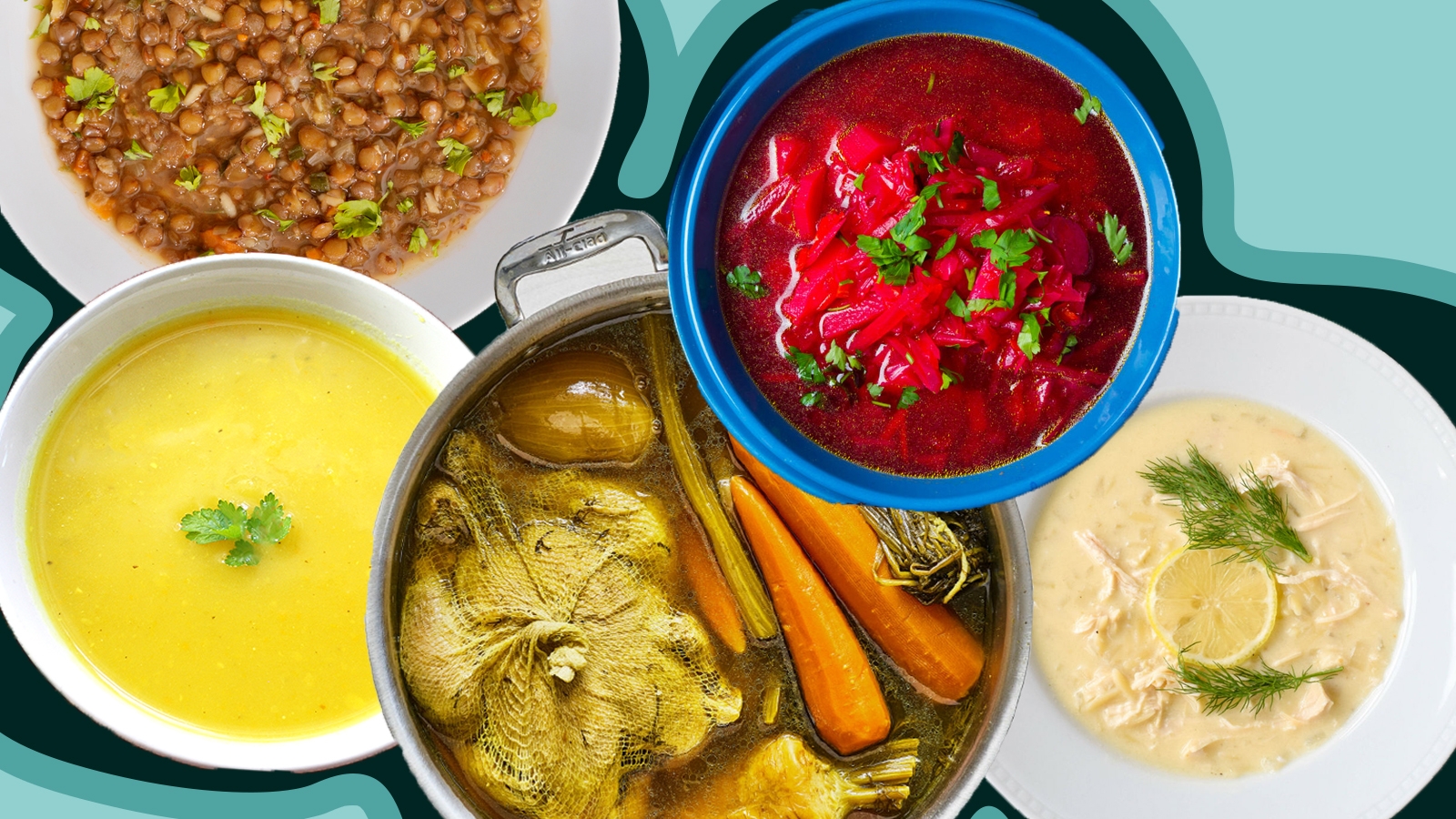While I wouldn’t be so bold as to claim that soup is a Jewish food, we do have a disproportionate love of it. And by “we,” I mean the global Jewish community — with roots in Egypt to Yemen, Eastern Europe, and Iraq. Our enthusiasm for a bowl of (usually) savory liquid is easily understood: Soup is a frugal dish and many of the varieties below originated in poor communities that relied on cheap ingredients like vegetables and meat bones to help more expensive items like beef chunks stretch further. Soup is an easy way to feed a crowd and are therefore often enjoyed on Shabbat and festivals. Plus, it’s the ultimate comfort food and, Lord knows, our people have had more than their fair share of troubles!
But what makes a soup Jewish? And which is the best Jewish soup? Behold, a totally subjective ranking that you can fight with your friends about:
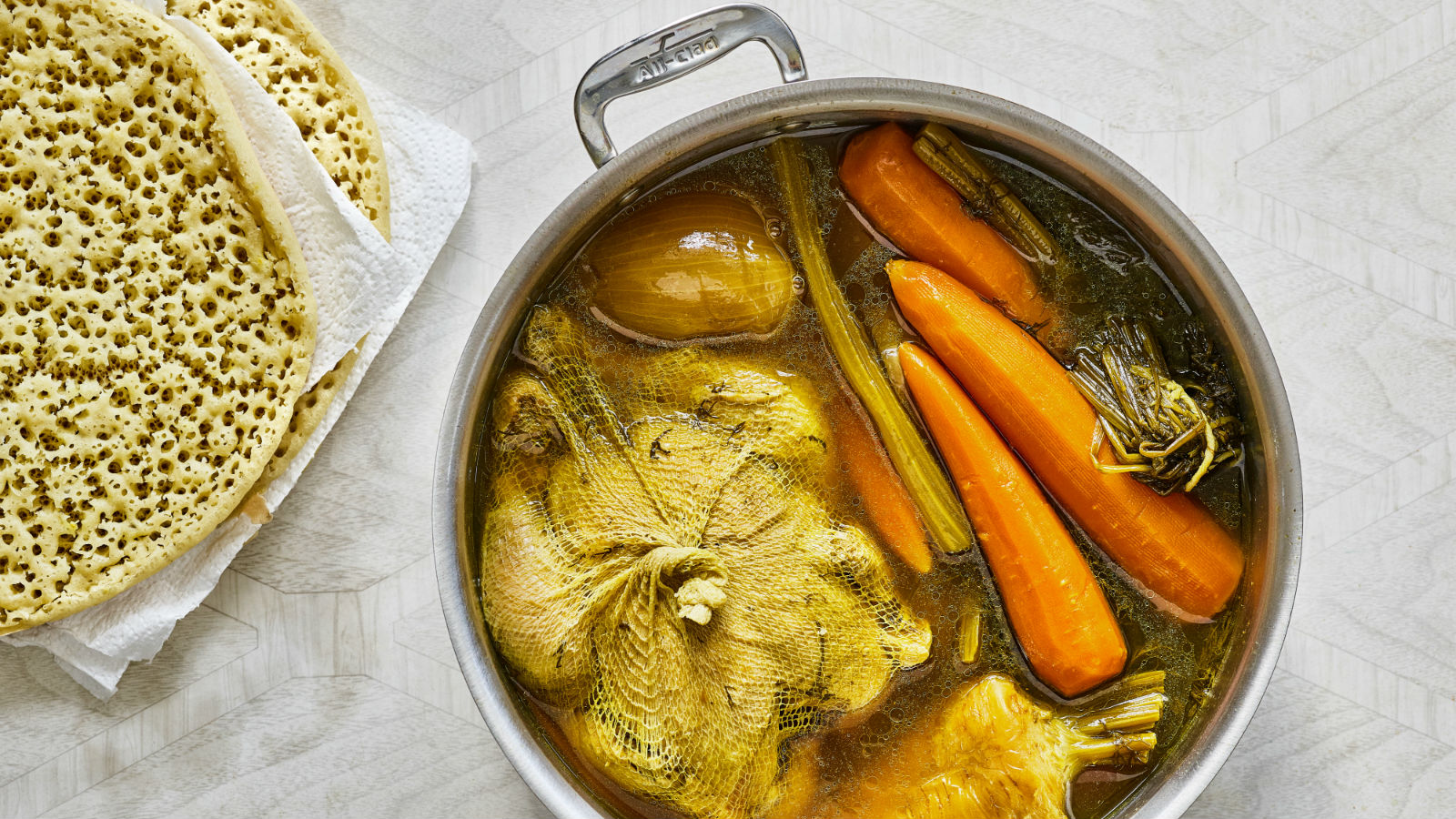
1. Yemenite Soup
A broad term for numerous sensational soups from the Yemenite kitchen unified by a warming spice blend called hawaij that features turmeric, black pepper, cardamom, cumin, and coriander. The most traditional variety uses marrow bones to impart a deep meaty flavor (basically, a bone broth), though a chicken base is also common — try adding hawaij to your chicken soup for a burst of sunshine. We love this vegetarian take with root vegetables, too.
The Nosher celebrates the traditions and recipes that have brought Jews together for centuries. Donate today to keep The Nosher's stories and recipes accessible to all.
Pros: A fragrant one-pot meal that only improves with time in the fridge.
Cons: Your local supermarket probably doesn’t stock hawaij. Luckily, there’s Amazon.
2. Kubbeh Soup
If you’re new to this Iraqi delicacy, just think of kubbeh as a kind of stuffed, elevated matzah ball. Made with bulgur wheat or semolina, these dumplings are filled with meat, then simmered in a variety of broths, ranging from beet-based to turmeric-tinged. This is one instance where the soup is secondary to its accompaniments: the kubbeh take center stage.
Pros: Kubbeh are dense and super filling, so a bowl of this soup is a full meal.
Cons: This ain’t no quick dish — the kubbeh are made by hand and quite labor-intensive.
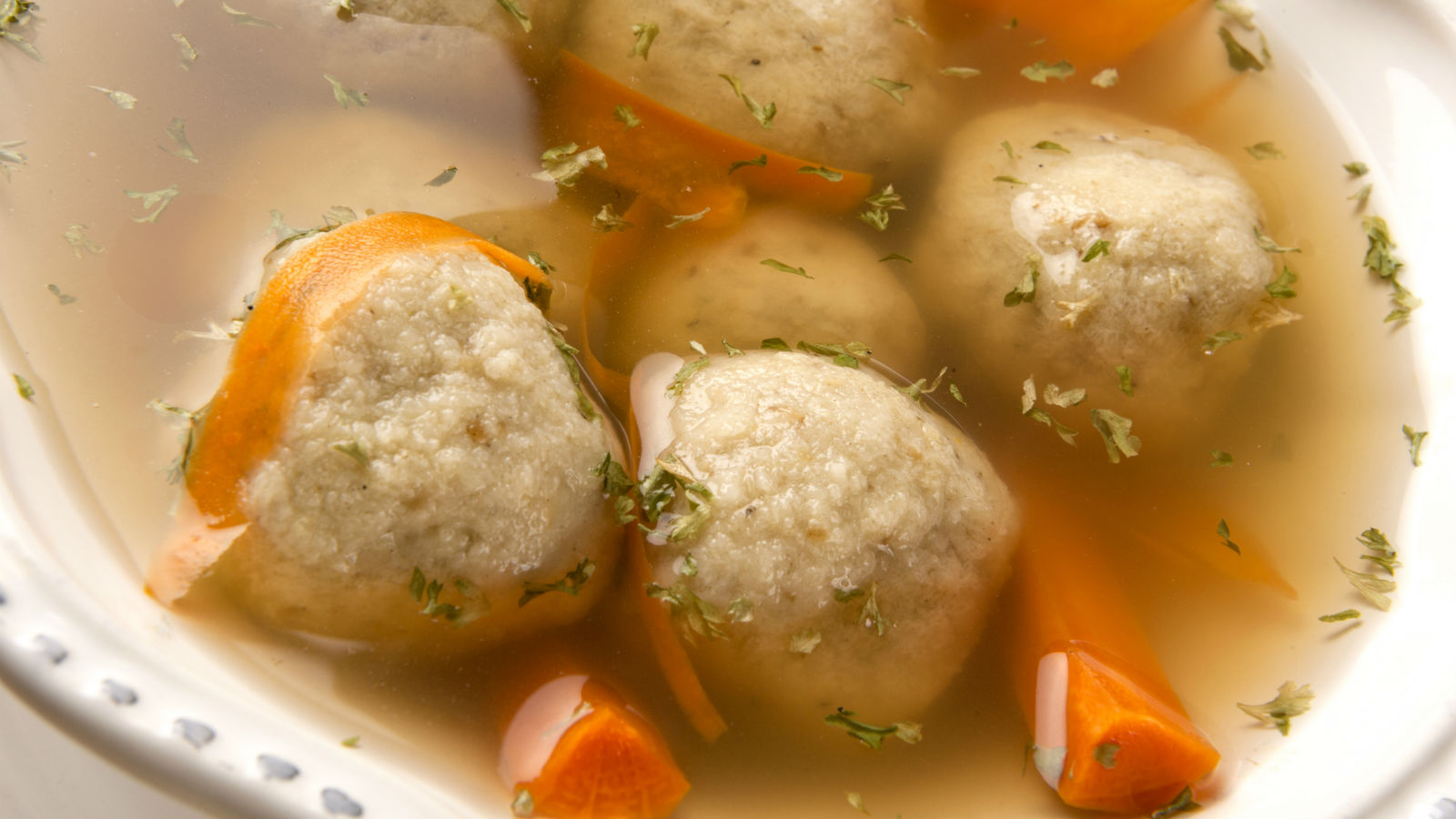
3. Chicken Soup With Matzah Balls or Kreplach
This classic broth ranks highly for name recognition alone — it is arguably the quintessential Jewish soup. Somehow, leftover chicken carcasses/cheap cuts/older hens are elevated to pure magic with the addition of vegetables, water, and time. And if that weren’t enough, we have fluffy matzah balls to suck up all the goodness, or dumplings filled with all sorts of treats to add an extra level of intrigue. This is a dish to be tweaked and honed over time according to personal taste, though this classic version is a good place to start. If you’re looking to push the boundaries, try cooking it in the oven instead of on the stove, or adding lamb bones for a deeper flavor.
Pros: Not called “Jewish Penicillin” for nothing, studies have shown that this soup helps reduce upper respiratory cold symptoms.
Cons: No version will ever be as good as your grandmother’s.
4. Egyptian Golden Potato Soup
Of the various potato-based Jewish soups, this one stands out. The humble potato is elevated with a burst of brightness from lemon juice added just before serving and a healthy dose of trendy turmeric, responsible for its golden color.
Pros: Easily adapted for vegetarians — just switch out the chicken stock for water.
Cons: Be wary of golden splatters while blending.
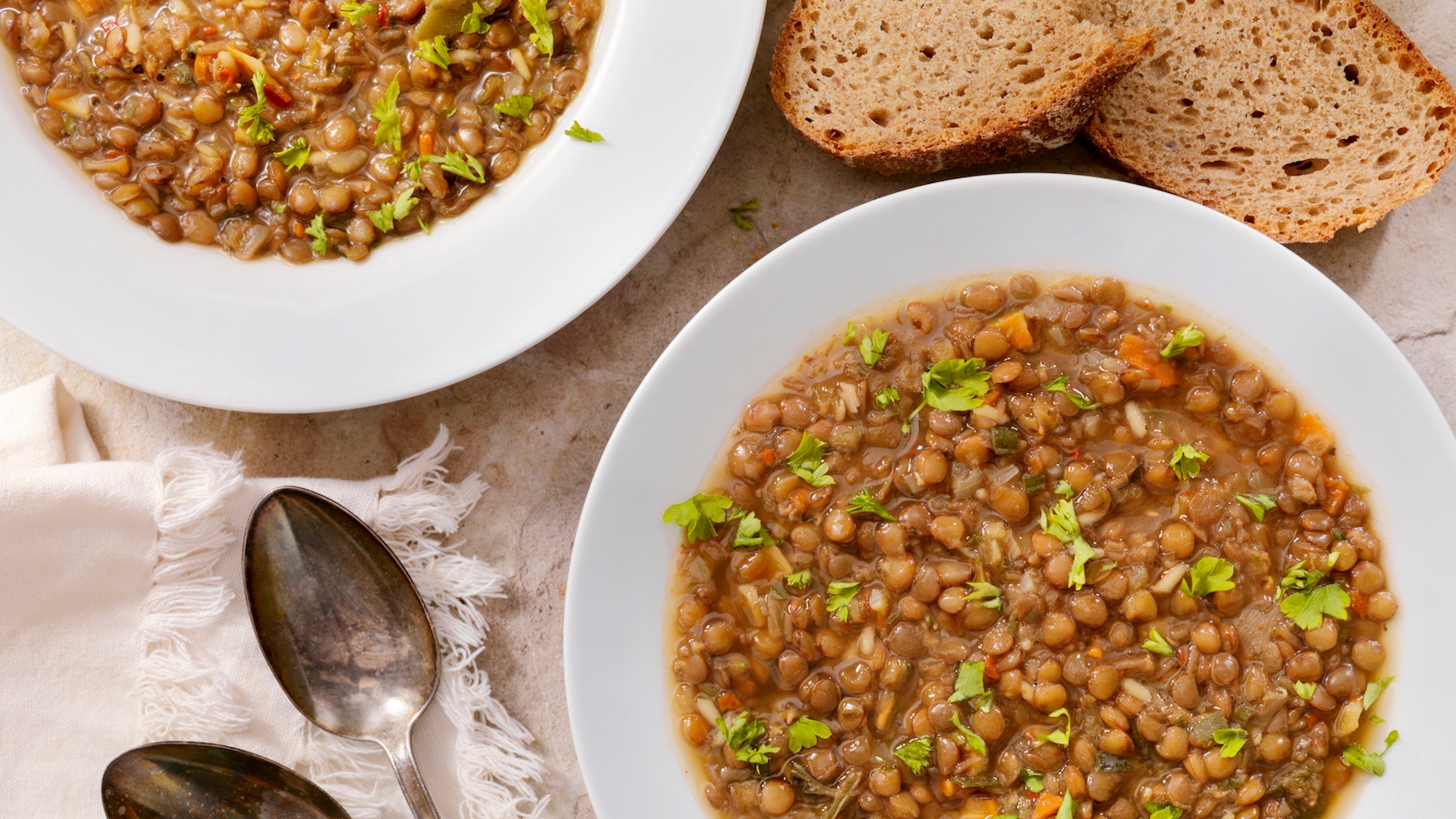
5. Lentil Soup
This thrifty, filling concoction is the OG of Jewish soups — literally — boasting biblical roots. It plays a starring role in the feud for first-born dominance between Jacob and Esau. Basically, Esau, hangry from a hard day’s work in the field, agrees to sell his first-born rights to younger brother Jacob in exchange for a bowl of lentil soup. That soup must have smelled pretty damn good to be worth giving up a whole bunch of privileges, almost as good as this hearty tomato-based lentil soup with facon (yes, that’s fake bacon), or this Syrian lentil soup flavored with garlic and cumin.
Pros: An excellent source of meat-free protein and opportunities for deception.
Cons: The amount of grit in packaged lentils requires thorough rinsing.
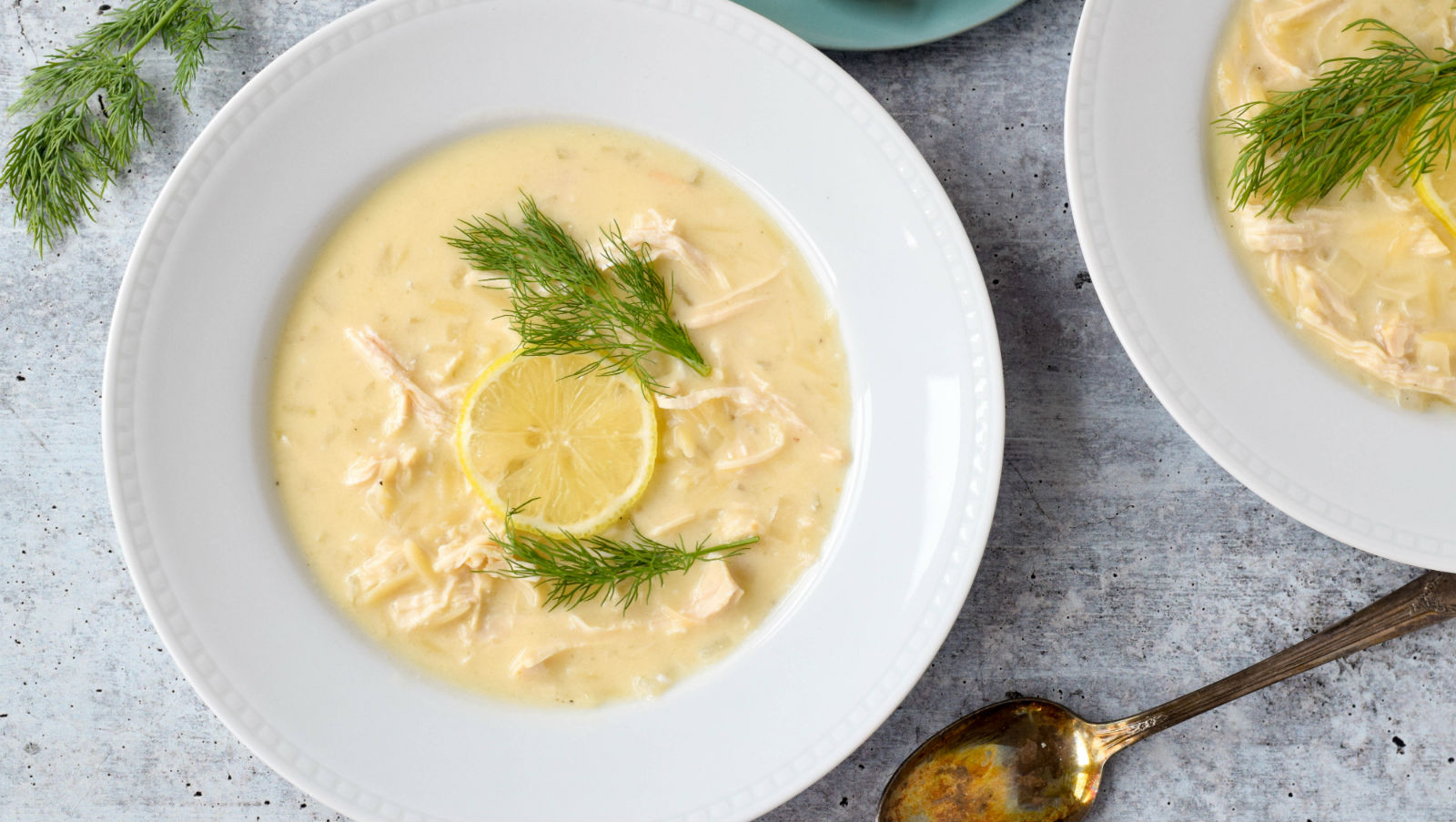
6. Sopa de Huevos y Limon
This brighter, silkier take on chicken soup hailing from Turkey, Greece, and the Balkan States is a true comfort food. It’s so nourishing and gentle on the stomach that it’s a popular meal to bring in or break the Yom Kippur fast. Plus, it’s a great way to use up leftover chicken. Check out this classic recipe.
Pros: Despite its velvety creaminess, this soup is dairy-free.
Cons: The egg tempering process can be tricky.
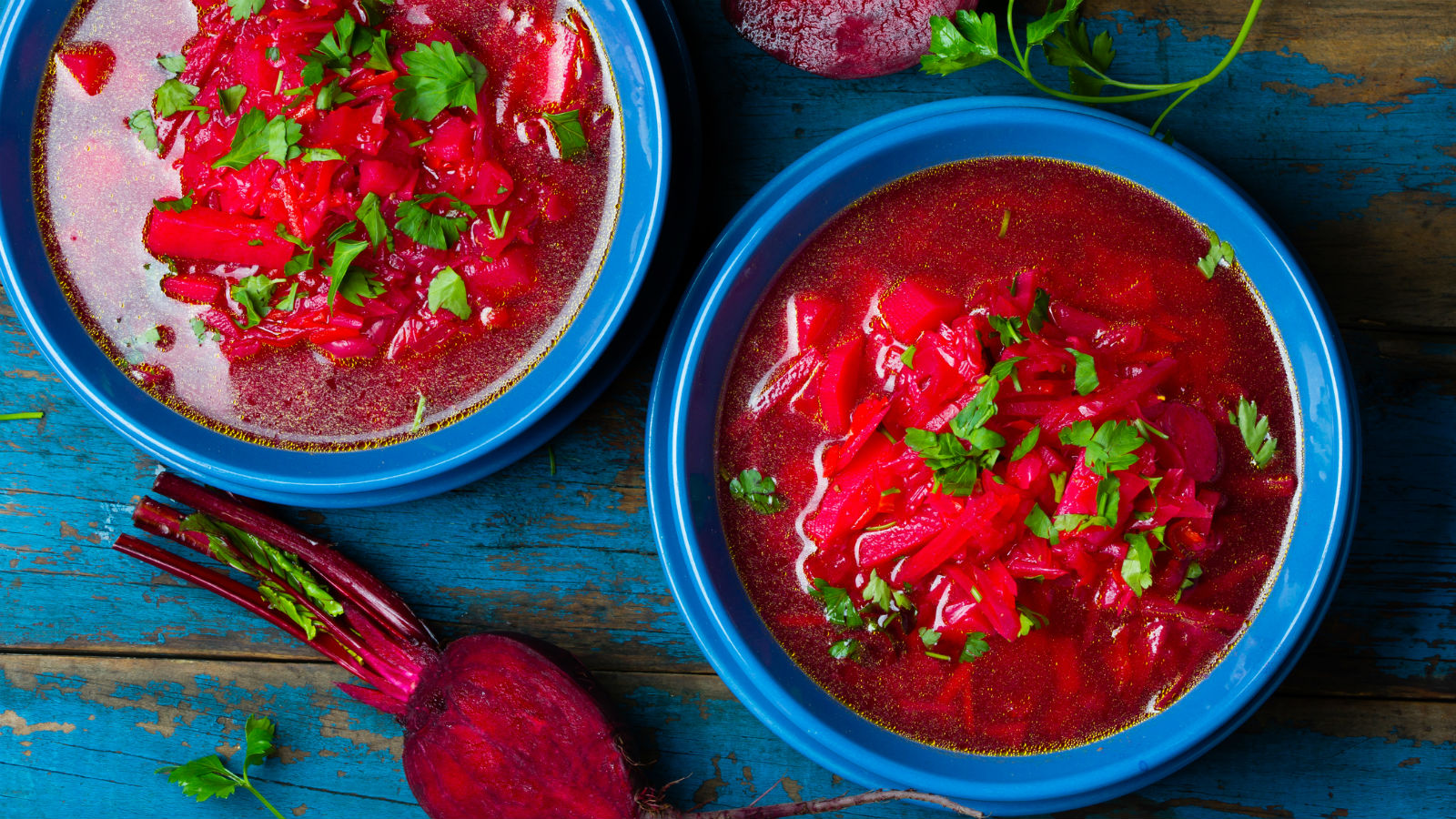
7. Borscht
Although in Eastern Europe borscht is considered a local, not Jewish, delicacy, this fuchsia riot of a soup has become synonymous with traditional Jewish eateries in the U.S. and wider Anglo diaspora. Cheap, earthy beets are the undisputed star, but the accompanying flavors offer tons of room for experimentation — emphasize the sweet-sour notes with lemon and sugar or freshen it up with orange, ginger, and mint.
Pros: Suitable for year-round sipping, as it’s equally delicious served hot or cold.
Cons: That bright color equals significant stain potential.
